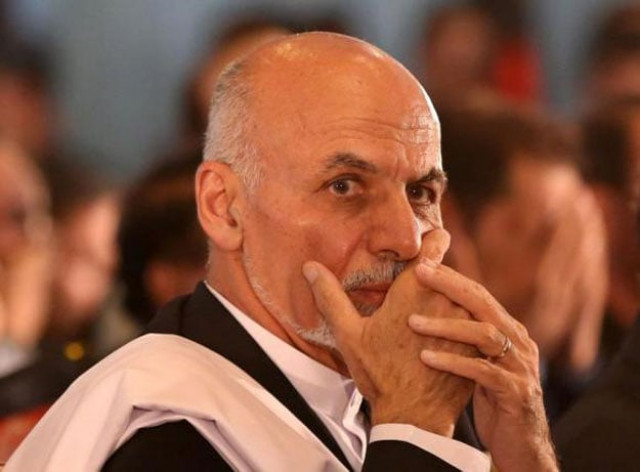Ghani eyes Saudi mediation in peace talks with Taliban
Analysts believe the kingdom’s assistance in negotiation is invaluable.

PHOTO: REUTERS
According to Afghan Ambassador to Saudi Arabia Sayed Ahmad Omarkhil, the talks have raised prospects for stronger cooperation between the two countries regarding the negotiation process. Ghani’s maiden visit to Saudi Arabia since he assumed office in September 2014 has been viewed as an important development to ensure peace and stability in Afghanistan. On March 16, Afghanistan’s Deputy Foreign Minister Hekmat Khalil Karzai announced that face-to-face peace talks with the Taliban would begin soon. However, Taliban spokesperson Zabihullah Mujahid rejected Karzai’s claim, saying there was no change in their policy of not talking to the Kabul administration.
At a time when Afghan leaders have voiced optimism over the decision to initiate dialogue with the Taliban, Ghani’s visit to Saudi Arabia serves as a beacon of hope. Analysts believe Saudi Arabia’s assistance in this negotiation process can be particularly valuable since they have a strong influence on the Taliban.
Change of heart
Saudi Arabia is one of the three countries which recognised the Taliban government in Afghanistan between 1996 and 2001. Although it has not been active in the negotiation process so far, the country is now willing to assume an active role in this regard.
The change in Saudi Arabia’s outlook towards the Taliban was largely fuelled by suspicions of Taliban links with al Qaeda since the collapse of the Taliban regime in 2001.
Saudi officials have urged Taliban leaders to sever ties with al Qaeda. Moreover, Saudi rulers have also voiced reservations about the emergence of the Islamic State in Afghanistan as it would never want the IS to replace the Taliban.
Taliban officials have repeatedly clarified they do not want any country to mediate their talks with the Kabul administration. However, Hizb-e-Islami Afghanistan, the second largest resistance group, strongly believes Saudi Arabia can play a critical role in the negotiation process.
“Saudi Arabia can play a major role in bringing peace to Afghanistan because of Saudi Arabia’s special status among all Muslims and its long history of support for the Afghan cause,” Ghairat Baheer, head of the group’s political council, told The Express Tribune.
He added, “The Saudis have supported the Afghan cause since time immemorial. However, the matter predominantly depends on Afghan stakeholders who ought to realise their country is in desperate need of peace and stability.”
Mixed response
Politicians and the media in Afghanistan have remained cautiously optimistic about the outcome of President Ghani’s visit on talks with the Taliban. A large section of the media also believes Riyadh can play a vital role in the Afghan peace process.
“Saudi Arabia can play a significant role in mediating the peace process between the Afghan government and the Taliban as it has been financially supporting the latter,” stated an editorial comment in Cheragh, a privately-owned daily newspaper.
Similarly, Sarnawesht, an independent daily in Afghanistan, hoped the visit would produce positive results in the peace process.
Yet, lawmakers and politicians have expressed doubts about Saudi Arabia’s role in the political process.
Parliamentarian Baktash Siyavash told Tolo TV that he was unimpressed by the developments and said President Ghani would not be able to achieve peace in the country by asking Saudi Arabia for help. “If Ghani looks for the key to the peace process in the pockets of Arab leaders, he will repeat the same mistakes his predecessor Hamid Karzai made,” he added.
Published in The Express Tribune, March 21st, 2015.



1725254039-0/Untitled-design-(24)1725254039-0-208x130.webp)















COMMENTS
Comments are moderated and generally will be posted if they are on-topic and not abusive.
For more information, please see our Comments FAQ